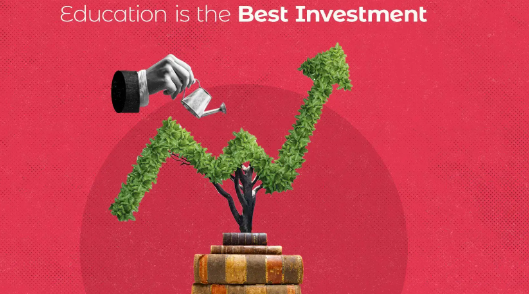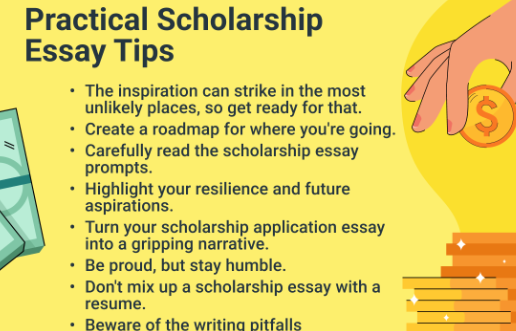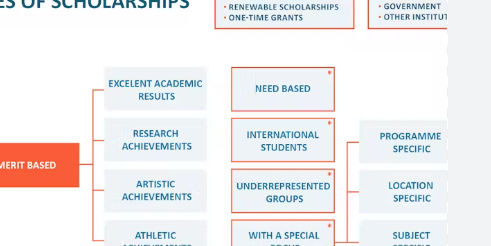Scholarships and Beyond: How to Make the Most of Your Educational Investment

Making the most of your educational investment involves more than just securing scholarships, although they can certainly be a significant part of the financial equation. Here are some tips to help you maximize the value of your education: Research Scholarships: Spend time researching scholarships that you qualify for based on your academic achievements, extracurricular activities, background, and interests. There are numerous scholarships available from various sources, including universities, government agencies, private organizations, and foundations. Apply Early and Often: Don’t wait until the last minute to start applying for scholarships. Many have deadlines well in advance of the academic year, so start your search early and apply to as many scholarships as you can realistically
manage. Treat scholarship applications like part-time job applications, investing the time and effort needed to craft compelling essays and gather required documents. Seek Financial Aid: In addition to scholarships, explore other forms of financial aid, such as grants, work-study programs, and student loans. Fill out the Free Application for Federal Student Aid (FAFSA) to determine your eligibility for federal grants and loans, as well as potential aid from your college or university. Consider Alternative Funding Sources: Look beyond traditional scholarships and financial aid programs. Some employers offer tuition reimbursement or assistance programs for employees pursuing further education. Additionally, crowdfunding platforms can be a way to garner financial support from friends, family, and even strangers
who believe in your educational goals. Maintain Academic Excellence: Many scholarships require a minimum GPA or other academic criteria for eligibility and renewal. Focus on your studies and strive for excellence to ensure you remain eligible for scholarships and maintain any academic-based financial aid you receive. Explore Internship Opportunities: Internships not only provide valuable real-world experience but can also lead to future job opportunities and financial support. Some companies offer internships with stipends or scholarships, and participating in such programs can help offset educational costs while building your resume. Network and Build Relationships: Networking with professors, mentors, alumni, and professionals in your field can open doors to scholarships, internships, job opportunities, and valuable advice. Attend career fairs, join professional organizations, and actively participate in campus events to
expand your network and increase your chances of finding financial support. Seek Academic and Career Guidance: Take advantage of academic advisors, career counselors, and mentors who can provide guidance and support throughout your educational journey. They can help you identify scholarship opportunities, plan your academic path, and explore career options aligned with your interests and goals. Budget Wisely: Even with scholarships and financial aid, managing your finances effectively is crucial. Create a budget to track your expenses, prioritize your spending, and avoid unnecessary debt. Look for ways to save money on textbooks, housing, transportation, and other expenses without sacrificing your academic or personal well-being. Invest in Yourself Beyond the Classroom: While academic
success is important, don’t overlook the value of personal and professional development outside of your coursework. Engage in extracurricular activities, volunteer work, leadership roles, and skill-building workshops that enhance your overall education and make you a more well-rounded individual. By following these tips and actively seeking out opportunities to fund your education, you can make the most of your educational investment and set yourself up for success in your academic and professional pursuits.here are some additional strategies to help you maximize the value of your educational investment: Seek Mentorship: Find mentors who can offer guidance, support, and advice as you navigate your educational journey. Mentors can provide valuable insights, help you set goals, and
connect you with opportunities that you might not discover on your own. Look for mentors among faculty members, alumni, professionals in your field of interest, or even family friends who have relevant experience. Participate in Research Opportunities: Many universities offer undergraduate research programs or opportunities to assist faculty members with their research projects. Engaging in research not only enhances your academic experience but also strengthens your resume and can make you a more competitive candidate for scholarships, internships, and graduate school. Apply for Study Abroad Programs: Explore study abroad programs that align with your academic interests and career goals. Studying abroad can provide unique learning experiences, cultural immersion, and global
perspectives that enhance your education and personal development. Look for scholarships and grants specifically designed to support study abroad experiences. Develop Marketable Skills: In addition to academic knowledge, focus on developing practical skills that are in demand in your chosen field. This could include technical skills, communication skills, problem-solving abilities, or leadership qualities. Seek out opportunities to gain hands-on experience through internships, part-time jobs, volunteer work, or extracurricular activities. Take Advantage of College Resources: Utilize the resources and facilities available to you on campus, such as libraries, career centers, tutoring services, and academic support programs. These resources can help you excel academically, explore career options, refine your resume and interviewing skills, and connect with potential employers or graduate programs. Consider Alternative Education Models: Traditional four-year colleges and universities are not the only path to a quality education. Explore alternative education models, such as community
colleges, online courses, vocational schools, boot camps, and apprenticeship programs. These options may offer more affordable tuition, flexible schedules, and specialized training tailored to your career goals. Stay Informed About Financial Aid Options: Keep yourself informed about changes in financial aid policies, scholarship opportunities, and loan repayment programs. Stay in touch with your college’s financial aid office, regularly check scholarship databases and websites, and subscribe to newsletters or email alerts from relevant organizations to stay updated on available funding sources. Be Strategic About Course Selection: Choose your courses strategically to align with your academic and career interests, fulfill degree requirements efficiently, and maintain a manageable workload. Consider taking advanced placement (AP) or dual-enrollment courses in high school to earn college credit and reduce the time and cost of your degree. Plan for Graduate Education: If you plan to pursue graduate or professional school after completing your undergraduate degree, start planning early. Research graduate programs, admission requirements, and financial aid options well in
advance. Seek out opportunities to strengthen your application, such as gaining research experience, obtaining strong letters of recommendation, and preparing for standardized tests like the GRE or GMAT. Stay Flexible and Adapt to Change: Finally, remain adaptable and open to new opportunities and experiences throughout your educational journey. Be willing to adjust your plans as needed, explore diverse interests, and embrace challenges as opportunities for growth and learning. By remaining flexible and resilient, you can make the most of your educational investment and position yourself for success in a rapidly changing world. By incorporating these additional strategies into your educational planning and investment approach, you can further enhance the value and impact of your education, setting yourself up for long-term personal and professional success.





